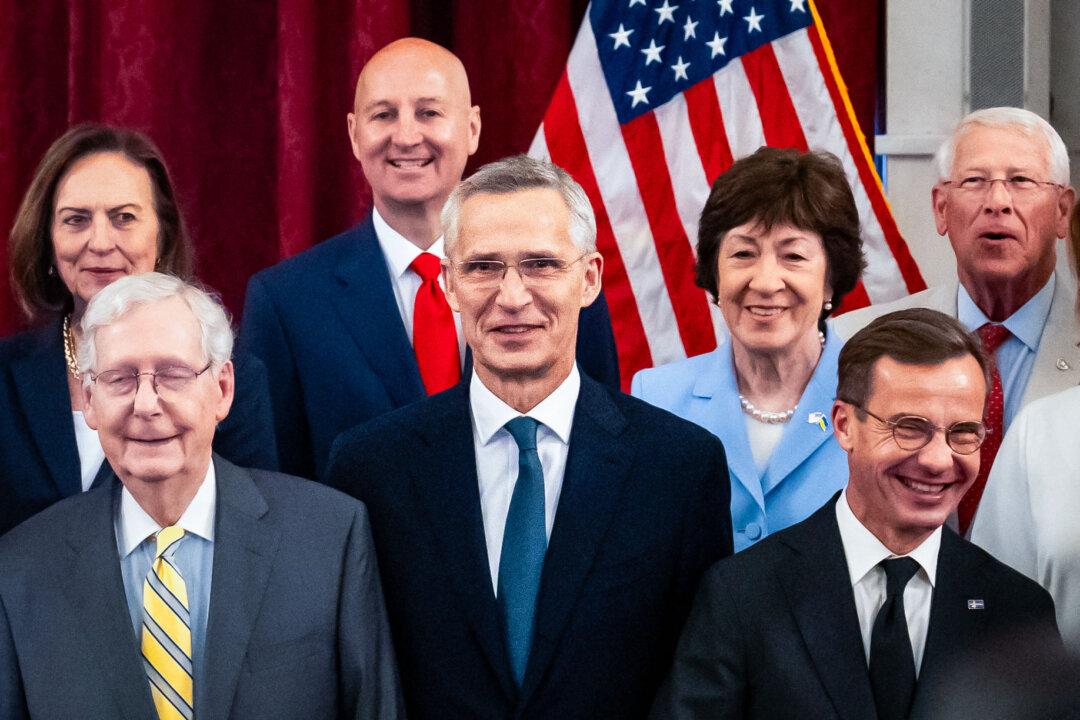WASHINGTON—NATO Secretary-General Jens Stoltenberg said on July 10 that ensuring Ukraine could join the alliance as a full member is the best way to deter future Russian aggression following 10 years of conflict in eastern Europe.
“I strongly believe that when the fighting stops, we need to ensure that Ukraine has the capabilities to deter future aggression from Russia and they need security guarantees,” Mr. Stoltenberg said.




